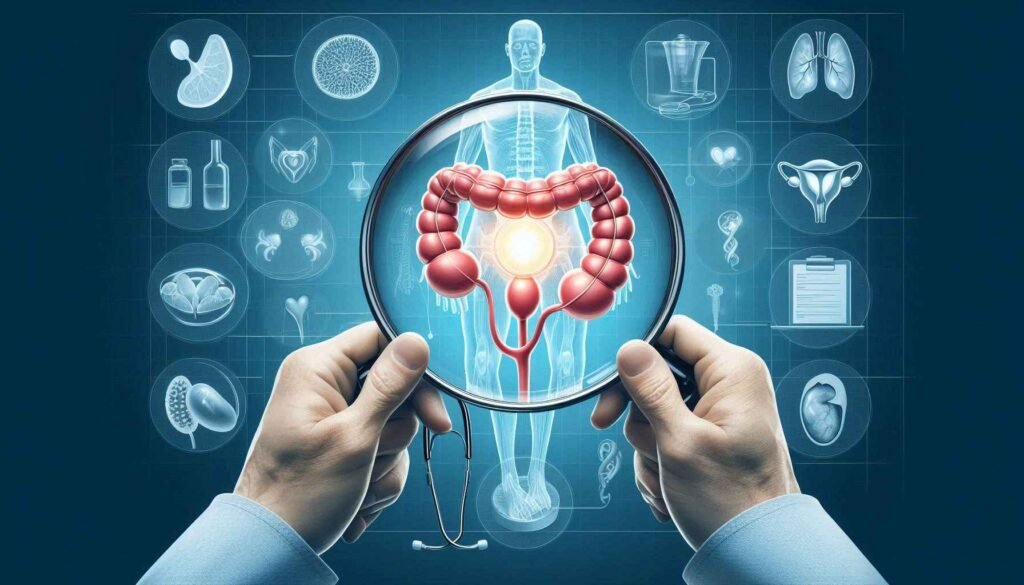Reproductive Health Across the Lifespan: Key Concerns and Care
Reproductive Health Across the Lifespan: Key Concerns and Care (Part 1)
Reproductive health is an essential aspect of overall well-being that evolves throughout different stages of life. From adolescence to older adulthood, the focus and concerns related to reproductive health change significantly. Because of these shifts, tailored care and understanding are crucial for maintaining wellness. This blog explores key concerns and effective care strategies for each stage of life.
Introduction to Reproductive Health
Reproductive health encompasses physical, emotional, and social well-being related to the reproductive system. It applies to all stages of life and involves more than just the absence of disease. Instead, reproductive health includes having a satisfying and safe sexual life, the capacity to reproduce, and the freedom to decide if, when, and how often to do so.
In this post, we’ll address the key concerns and recommended care strategies for different life stages:
- Adolescence and Early Adulthood
- Midlife (Reproductive Years)
- Later Life and Beyond
Adolescence and Early Adulthood: Laying the Foundation
Adolescence and early adulthood mark the beginning of reproductive health awareness. This stage is critical for education, prevention, and the development of healthy habits. Therefore, addressing concerns early can help build a foundation for lifelong reproductive health.
Key Concerns
1. Puberty and Hormonal Changes
Puberty triggers significant hormonal changes, leading to the development of secondary sexual characteristics. During this time, menstruation begins for females, while males experience the start of sperm production.
- Challenges: Issues such as irregular periods, acne, and emotional fluctuations are common.
- Care: Encouraging open discussions about bodily changes can help teenagers navigate this phase confidently. Additionally, seeking professional guidance ensures they receive accurate information.
2. Sexual Education
Understanding safe sex practices and reproductive anatomy is crucial during this stage. Comprehensive education helps prevent unintended pregnancies and sexually transmitted infections (STIs).
- Challenges: Inadequate or misleading information about sexual health often leads to confusion.
- Care: Schools, parents, and healthcare providers should provide accurate, age-appropriate information. By doing so, they help build a foundation for healthy decision-making.
3. Contraception Awareness
As sexual activity begins, knowledge about contraception becomes essential. Educating young adults about their options empowers them to make informed choices.
- Challenges: Misconceptions about contraceptive methods can lead to ineffective use.
- Care: Access to healthcare providers and reliable resources helps address these concerns. Moreover, clinics and counseling services are invaluable in guiding young adults.
4. STIs and Preventive Care
The risk of contracting STIs, such as chlamydia, gonorrhea, and HIV, increases during this stage. Therefore, prevention and early detection are key to maintaining reproductive health.
- Care: Regular screenings and vaccinations, such as the HPV vaccine, are essential. These measures help reduce the risk of infection and related complications.
Promoting Care
Access to Healthcare Services
Adolescents should have access to non-judgmental and confidential reproductive health services. When healthcare providers create a safe environment, teens are more likely to seek help when needed.
Mental Health Integration
Hormonal changes and social pressures can impact mental health. Therefore, addressing emotional well-being alongside physical health is crucial. Support from counselors and mental health professionals provides the necessary tools to cope.
Healthy Habits Formation
Developing healthy habits early can prevent many reproductive health issues. For instance, encouraging a balanced diet, regular physical activity, and good hygiene supports overall wellness. These habits often carry into adulthood, promoting long-term health.
Midlife: Navigating Reproductive Years
The reproductive years, typically spanning from the 20s to early 50s, bring unique challenges and milestones. From family planning to the onset of perimenopause, this stage requires careful attention to reproductive health.
Key Concerns
1. Fertility Planning
Many individuals and couples focus on achieving or delaying parenthood during this stage. Therefore, fertility awareness helps with family planning and decision-making.
- Challenges: Infertility, age-related fertility decline, and reproductive health conditions can complicate plans.
- Care: Regular fertility assessments and early interventions are beneficial. In addition, treatments like in vitro fertilization (IVF) and other assisted reproductive technologies (ART) provide viable options.
2. Pregnancy and Postpartum Health
Pregnancy is a significant event, with physical and emotional demands that vary for each person. Consequently, proper care ensures both maternal and fetal health.
- Challenges: Complications such as gestational diabetes, preeclampsia, and postpartum depression may arise.
- Care: Regular prenatal and postnatal checkups are crucial for detecting and managing any issues early. Moreover, support systems, including family and mental health professionals, ease the transition into parenthood.
3. Menstrual Irregularities
Conditions like polycystic ovary syndrome (PCOS) and endometriosis can cause disruptions in menstrual health. Early intervention can improve outcomes.
- Challenges: Heavy, painful, or irregular periods can affect daily life and fertility.
- Care: Treatments may include medication, lifestyle changes, or surgical interventions. Therefore, regular gynecological exams are essential for early diagnosis and management.
4. Sexual Health and Intimacy
Maintaining intimacy and addressing sexual health concerns are important for overall well-being. Ignoring these issues can impact relationships and emotional health.
- Challenges: Problems such as decreased libido, pain during intercourse, and sexual dysfunction are common.
- Care: Counseling, medical support, and open communication with partners help resolve these concerns. Additionally, adopting stress-reducing practices benefits intimacy.
Supporting Care
Comprehensive Family Planning
Access to contraception, fertility treatments, and counseling supports family planning goals. Consequently, individuals and couples have the tools needed to make informed decisions about their reproductive future.
Work-Life Balance
Managing career and family responsibilities can be stressful. For this reason, policies like parental leave and childcare support contribute significantly to overall well-being. Striking a balance reduces stress and enhances reproductive health.
Menstrual and Hormonal Care
Regular screenings for reproductive health conditions help detect issues early. As a result, treatments tailored to individual needs improve quality of life during the reproductive years
Reproductive Health Across the Lifespan: Key Concerns and Care (Part 2)
In this second half of our discussion on reproductive health, we’ll explore the middle years of life. This stage, which spans from the mid-20s to early 50s, encompasses key reproductive milestones, challenges, and transitions. During these years, individuals often deal with fertility planning, pregnancy, and the onset of perimenopause. Understanding these concerns and addressing them proactively can significantly improve overall well-being.
Midlife: Addressing Reproductive Health Challenges
The middle years are marked by significant changes and decisions related to reproductive health. For many, this period involves the joys of parenthood, the complexities of fertility, and the challenges of maintaining sexual health. Consequently, personalized care and awareness are essential for navigating this phase successfully.
Key Concerns During Midlife
1. Fertility Issues and Family Planning
During midlife, fertility naturally peaks in the late 20s and begins to decline gradually in the 30s. Therefore, this period often involves crucial decisions about conception, contraception, and family planning.
- Common Challenges:
- Infertility due to conditions like polycystic ovary syndrome (PCOS), endometriosis, or low sperm count.
- Age-related fertility decline, especially after age 35.
- Care Strategies:
- Fertility Assessments: Regular medical checkups, including hormone testing, can help identify fertility issues early.
- Assisted Reproductive Technology (ART): Options such as in-vitro fertilization (IVF) and intrauterine insemination (IUI) offer solutions for those facing difficulties conceiving.
- Contraceptive Counseling: For those not ready for parenthood, exploring contraceptive options with a healthcare provider is crucial.
2. Pregnancy and Postpartum Health
For many, midlife is a time when pregnancy becomes a central focus. However, pregnancies in this age group can present unique challenges, particularly for those over 35.
- Common Challenges:
- Higher risk of complications like gestational diabetes, preeclampsia, and miscarriage.
- Postpartum mental health concerns, including depression and anxiety.
- Care Strategies:
- Regular Prenatal Checkups: Frequent monitoring helps detect and manage complications early.
- Postpartum Support: Access to counseling and mental health services can ease the emotional transition after childbirth.
- Healthy Lifestyle Choices: Maintaining a balanced diet, staying active, and managing stress can enhance both pregnancy outcomes and postpartum recovery.
3. Menstrual Health and Disorders
Menstrual health can become more complex during midlife. Conditions like heavy periods, irregular cycles, and painful cramps are common and often indicate underlying issues.
- Common Challenges:
- Disorders such as PCOS, endometriosis, and uterine fibroids.
- Irregular periods due to hormonal changes or approaching perimenopause.
- Care Strategies:
- Medical Treatments: Options like hormonal therapies, medications, or surgical interventions can provide relief.
- Lifestyle Changes: Exercise, a healthy diet, and stress management can help manage symptoms.
- Routine Screenings: Regular gynecological checkups ensure early diagnosis and treatment of menstrual disorders.
4. Sexual Health and Intimacy
Maintaining sexual health and intimacy is vital for emotional well-being. Yet, midlife often brings changes that can affect sexual satisfaction.
- Common Challenges:
- Decreased libido, vaginal dryness, and erectile dysfunction.
- Stress, parenting responsibilities, and work-life balance issues that interfere with intimacy.
- Care Strategies:
- Open Communication: Discussing concerns with your partner fosters understanding and intimacy.
- Medical Interventions: Treatments like hormone replacement therapy (HRT) or medications for erectile dysfunction can help.
- Counseling and Therapy: Professional guidance can address emotional or psychological factors impacting sexual health.
Supporting Care During Midlife
Comprehensive Family Planning
Family planning is crucial during midlife, as individuals may need both fertility support and contraceptive options. Therefore, access to reproductive healthcare services, including fertility treatments and counseling, is essential. These resources empower individuals and couples to make informed decisions that align with their life goals.
Work-Life Balance
Balancing work responsibilities and family life can be challenging. Consequently, supportive workplace policies such as parental leave, flexible schedules, and childcare assistance contribute significantly to well-being. Additionally, adopting self-care practices helps manage stress and supports reproductive health.
Menstrual and Hormonal Care
Hormonal imbalances and menstrual disorders are common during midlife. For this reason, regular screenings and tailored treatments are crucial. By addressing these issues promptly, individuals can improve their quality of life and reproductive health.
Mental and Emotional Health
Reproductive health is closely linked to mental and emotional well-being. Therefore, integrating mental health care into reproductive health services ensures holistic support. Practices such as mindfulness, therapy, and stress management can provide significant benefits.
Transition to Perimenopause
As individuals reach their late 40s or early 50s, they begin the transition to menopause, known as perimenopause. This stage brings about hormonal changes that can impact physical and emotional health. Understanding these changes is key to managing this transition smoothly.
Key Concerns in Perimenopause
1. Hormonal Fluctuations
During perimenopause, estrogen and progesterone levels begin to decline, leading to various symptoms. These hormonal shifts can be challenging to manage without proper care.
- Common Symptoms:
- Hot flashes, night sweats, mood swings, and sleep disturbances.
- Vaginal dryness, which can affect sexual health and comfort.
- Care Strategies:
- Hormone Replacement Therapy (HRT): HRT can help alleviate severe symptoms and improve quality of life.
- Non-Hormonal Treatments: Lubricants, vaginal moisturizers, and herbal supplements can provide relief for milder symptoms.
- Lifestyle Modifications: Regular exercise, a balanced diet, and stress-reducing activities like yoga and meditation can ease the transition.
2. Bone and Heart Health
Estrogen plays a key role in maintaining bone density and heart health. As estrogen levels decline, the risk of osteoporosis and cardiovascular disease increases.
- Care Strategies:
- Bone Health: Ensure adequate intake of calcium and vitamin D, and engage in weight-bearing exercises.
- Heart Health: Maintain a heart-healthy diet, exercise regularly, and schedule routine screenings for blood pressure and cholesterol.
3. Mental and Emotional Well-Being
Hormonal changes during perimenopause can impact mood and emotional stability. Consequently, many individuals experience anxiety, depression, or irritability.
- Care Strategies:
- Therapy and Counseling: Talking to a mental health professional can provide valuable support.
- Mindfulness Practices: Meditation, deep breathing, and relaxation exercises can help reduce stress and enhance emotional well-being.
Reproductive Health Across the Lifespan: Key Concerns and Care (Part 3)
In this final section, we focus on reproductive health during later life. As individuals enter post-menopause and older adulthood, maintaining sexual health, bone density, and emotional well-being becomes increasingly important. By addressing these concerns proactively, individuals can enjoy a fulfilling and healthy life well into their golden years. Therefore, understanding the changes that occur and implementing effective care strategies is essential.
Later Life: Reproductive Health Beyond Menopause
Although menopause marks the end of the reproductive years, it does not signify the end of reproductive health concerns. Instead, new challenges arise that require attention and care. Consequently, adopting a proactive approach to managing these changes is key to maintaining overall well-being.
Key Concerns in Later Life
1. Menopause and Post-Menopause Transition
Menopause typically occurs between the ages of 45 and 55, marking the end of menstruation. Afterward, post-menopause follows and lasts for the rest of an individual’s life. Consequently, this phase brings physical and emotional changes that impact overall health.
- Common Challenges:
- Hot flashes, night sweats, and mood swings.
- Vaginal dryness, leading to discomfort during intercourse.
- Sleep disturbances and fatigue.
- Care Strategies:
- Hormone Replacement Therapy (HRT): HRT can alleviate severe symptoms and improve quality of life.
- Non-Hormonal Treatments: Using vaginal lubricants, moisturizers, and herbal supplements can help ease discomfort.
- Lifestyle Changes: Regular exercise, a balanced diet, and stress management techniques such as yoga and meditation can support overall well-being.
2. Osteoporosis and Bone Health
As a result of declining estrogen levels, bone density decreases significantly after menopause. Consequently, the risk of osteoporosis and fractures increases. Therefore, maintaining bone health becomes a priority.
- Common Challenges:
- Brittle bones, which can lead to fractures and reduced mobility.
- Loss of height and a hunched posture.
- Care Strategies:
- Calcium and Vitamin D: Ensure adequate intake of calcium-rich foods and vitamin D supplements to maintain bone strength.
- Weight-Bearing Exercise: Activities such as walking, jogging, and strength training help preserve bone density.
- Bone Density Tests: Regular screenings can detect osteoporosis early, allowing for timely intervention.
3. Cardiovascular Health
Estrogen has a protective effect on heart health. Therefore, after menopause, the risk of cardiovascular disease increases. Paying attention to heart health becomes even more critical during this stage.
- Common Challenges:
- High blood pressure, elevated cholesterol, and an increased risk of heart disease.
- Symptoms such as shortness of breath, fatigue, and chest pain.
- Care Strategies:
- Heart-Healthy Diet: Focus on consuming fruits, vegetables, whole grains, lean proteins, and healthy fats.
- Regular Exercise: Engaging in activities like swimming, walking, and cycling supports heart health.
- Routine Checkups: Regular monitoring of blood pressure, cholesterol, and blood sugar levels helps with early detection and prevention.
Sexual Health and Intimacy in Later Life
Maintaining sexual health and intimacy is essential for overall well-being in older adulthood. Although physical changes may occur, proper care and communication can help individuals continue to enjoy satisfying relationships. Therefore, addressing concerns openly can lead to a healthier and more fulfilling sex life.
Key Challenges in Later-Life Sexual Health
1. Vaginal Dryness and Discomfort
Due to reduced estrogen levels, vaginal dryness can make intercourse uncomfortable. This challenge is common but manageable with the right care.
- Care Strategies:
- Lubricants and Moisturizers: Using water-based lubricants or vaginal moisturizers can significantly reduce discomfort.
- Vaginal Estrogen Therapy: Low-dose vaginal estrogen treatments help restore moisture and elasticity.
2. Decreased Libido
Hormonal changes, medications, and chronic health conditions can contribute to a reduced sex drive. As a result, intimacy may be affected.
- Care Strategies:
- Open Communication: Discussing concerns with your partner fosters understanding and emotional closeness.
- Medical Consultation: Speaking with a healthcare provider can help identify underlying causes and suggest appropriate treatments.
- Counseling and Therapy: Sex therapy or counseling can address emotional and psychological factors affecting libido.
3. Erectile Dysfunction (ED)
For men, erectile dysfunction becomes more common with age. This issue can stem from declining testosterone levels, cardiovascular problems, or medications.
- Care Strategies:
- Medications: Drugs like sildenafil (Viagra) can improve erectile function.
- Lifestyle Changes: Regular exercise, a healthy diet, and stress management support sexual health.
- Therapy: Counseling can help address psychological factors contributing to ED.
Tips for Maintaining Sexual Health
- Stay Physically Active: Regular exercise improves circulation, boosts energy, and enhances sexual function.
- Prioritize Communication: Open and honest discussions with your partner help address concerns and maintain intimacy.
- Seek Professional Help: Don’t hesitate to consult healthcare providers or therapists for advice and treatment options.
- Practice Self-Care: Prioritizing mental and emotional well-being through relaxation techniques, hobbies, and social engagement supports a healthy sex life.
Mental and Emotional Well-Being in Later Life
Reproductive health in later life is closely tied to mental and emotional well-being. The transition through menopause and aging can affect mood, cognition, and self-esteem. Therefore, maintaining emotional health is essential for a fulfilling life.
Common Challenges
1. Mood Swings and Depression
Hormonal changes, life transitions, and health concerns can trigger mood swings and depression. Consequently, emotional support is vital.
- Care Strategies:
- Therapy and Support Groups: Talking with a counselor or joining support groups can provide emotional relief.
- Mindfulness Practices: Techniques such as meditation, deep breathing, and yoga help reduce stress.
- Regular Exercise: Physical activity releases endorphins, which boost mood and energy levels.
2. Cognitive Health
Aging may bring cognitive challenges, including memory issues and reduced concentration. However, proactive care can help maintain mental sharpness.
- Care Strategies:
- Mental Exercises: Engaging in puzzles, reading, or learning new skills keeps the brain active.
- Social Engagement: Staying connected with friends and family helps improve cognitive function.
- Healthy Lifestyle: A balanced diet, adequate sleep, and regular exercise support brain health.
Preventive Care and Screenings for Later Life
Regular health screenings and preventive care are essential for maintaining reproductive health during later life. Staying proactive helps detect potential issues early, leading to better outcomes.
Recommended Screenings
- Bone Density Tests: Detect osteoporosis and bone loss early.
- Mammograms: Screen for breast cancer every 1-2 years, depending on your doctor’s advice.
- Pap Smears: Continue screening until the age of 65 unless otherwise advised by your doctor.
- Cardiovascular Health Checks: Monitor blood pressure, cholesterol, and blood sugar levels regularly.
- Colon Cancer Screening: Schedule routine colonoscopies or stool tests based on age and risk factors.



